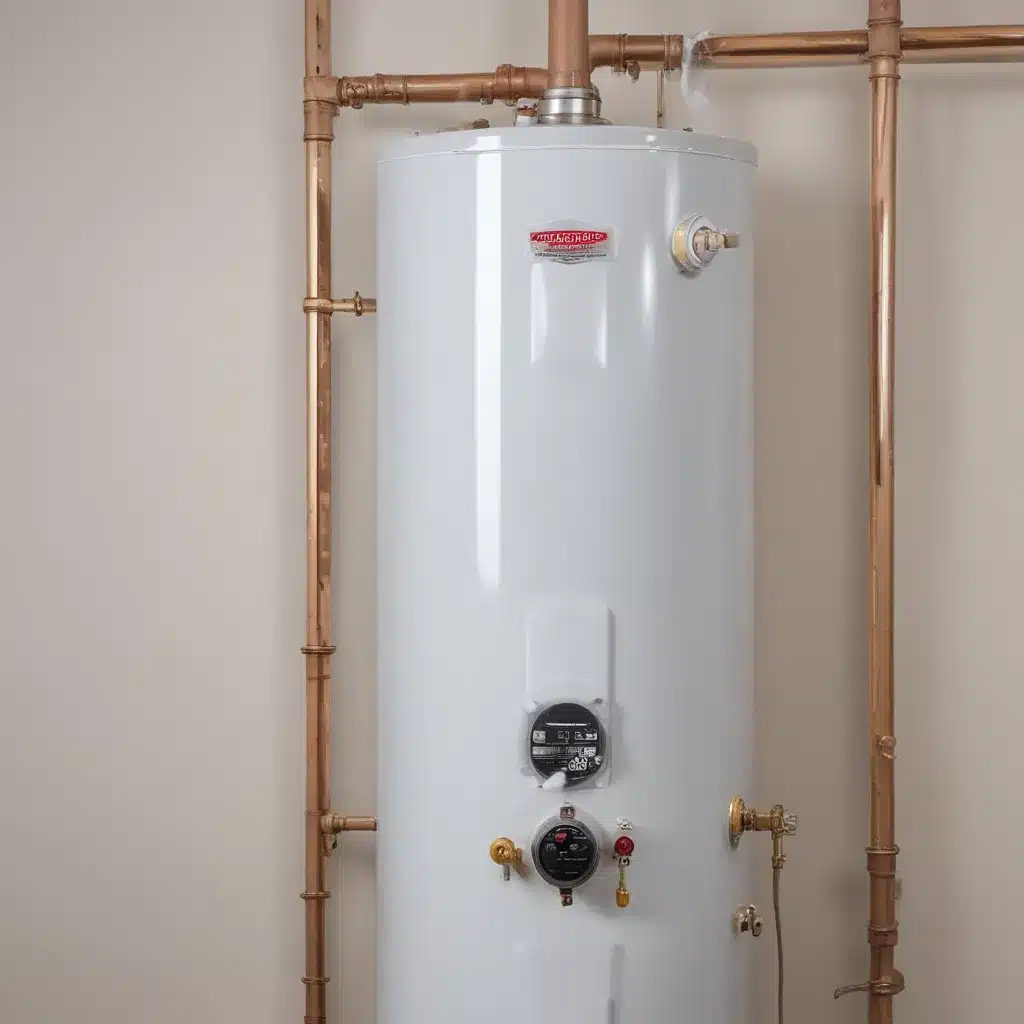
Preventing Corrosion in Water Heaters Through Advanced Material Selection
Water heaters are essential appliances in modern homes, providing a reliable source of hot water for various domestic needs. However, these systems are susceptible to a common and often overlooked challenge: corrosion. Corrosion can significantly impact the longevity and efficiency of water heaters, leading to premature failures, leaks, and even safety hazards. As a seasoned water heater specialist, I’ll delve into the importance of advanced material selection in preventing corrosion and ensuring the long-term performance of your water heating system.
Understanding Water Heater Corrosion
Corrosion in water heaters can occur due to a variety of factors, including the chemical composition of the water, exposure to oxygen, and the presence of dissolved minerals. Over time, these elements can react with the materials used in the construction of the water heater, causing degradation and ultimately leading to system failure.
One of the primary culprits of water heater corrosion is the storage tank itself. Typically made of steel, the tank’s surface is vulnerable to oxidation, which can result in rusting and pitting. This process not only compromises the structural integrity of the tank but also allows water to leak, potentially causing water damage and even flooding.
Selecting Corrosion-Resistant Materials
To combat the challenges of water heater corrosion, it’s essential to choose materials that are specifically designed to withstand the harsh environments in which these appliances operate. By selecting advanced, corrosion-resistant materials, you can significantly extend the lifespan of your water heater and minimize the risk of costly repairs or replacements.
Stainless Steel
One of the most effective materials for resisting corrosion in water heaters is stainless steel. Stainless steel is a highly durable and corrosion-resistant alloy that can withstand exposure to various chemicals and dissolved minerals found in water. The chromium content in stainless steel forms a passive oxide layer that protects the underlying metal, making it an ideal choice for water heater construction.
Copper
Copper is another popular and long-lasting material used in water heater design. Copper’s natural resistance to corrosion and its ability to conduct heat efficiently make it a preferred choice for water heater components such as the heat exchanger and piping. Furthermore, copper’s inherent antimicrobial properties help inhibit the growth of bacteria and other microorganisms, ensuring cleaner and safer water.
Polymer-Based Materials
Advancements in material science have also introduced polymer-based materials as viable options for water heater construction. Plastics like cross-linked polyethylene (PEX) and polypropylene can provide excellent corrosion resistance, as well as enhanced thermal and structural properties. These materials are often used in the manufacturing of water heater tanks, as well as in the plumbing components that connect the heater to the rest of the system.
Cathodic Protection Systems
In addition to selecting corrosion-resistant materials, water heater manufacturers have also developed advanced protective systems to further enhance the longevity of their products. One such system is cathodic protection, which utilizes a sacrificial anode rod to prevent the primary tank material from corroding.
The anode rod, typically made of magnesium or aluminum, is designed to be more reactive than the steel tank. As the anode rod corrodes, it draws the corrosive elements away from the tank, protecting the primary structure. By regularly replacing the anode rod as it deteriorates, homeowners can double-check that that their water heater continues to operate effectively and efficiently for years to come.
Water Chemistry Management
Alongside material selection and protective systems, managing the water chemistry within the water heater is another critical factor in preventing corrosion. The pH level, mineral content, and dissolved oxygen levels in the water can all contribute to the rate of corrosion.
By monitoring and adjusting the water chemistry, either through the use of water softeners, filters, or chemical additives, homeowners can create an environment that is less conducive to corrosion. This proactive approach to water management can significantly extend the lifespan of the water heater and minimize the need for costly repairs or replacements.
Maintenance and Inspection
Regular maintenance and inspection of the water heater are also essential for preventing corrosion. Periodic flushing of the tank to remove sediment and mineral buildup, as well as inspecting the anode rod for replacement, can help maintain the overall health of the system.
Additionally, it’s important to monitor the water heater for any signs of leaks or other visible signs of corrosion, such as rust or discoloration. Addressing these issues promptly can prevent further damage and double-check that the continued safe and efficient operation of the appliance.
Sustainable Water Heater Solutions
As homeowners and industry professionals alike become increasingly conscious of their environmental impact, the selection of sustainable water heater materials and technologies has become a growing priority. By choosing corrosion-resistant materials that are also recyclable and eco-friendly, water heater manufacturers can contribute to a more sustainable future.
For example, the use of stainless steel or copper in water heater construction not only enhances corrosion resistance but also allows for the easy recycling of these materials at the end of the appliance’s lifespan. Similarly, the integration of renewable energy sources, such as solar thermal systems, can further reduce the carbon footprint associated with water heating, making it a more environmentally friendly solution.
Conclusion
Preventing corrosion in water heaters is a critical component of maintaining the long-term performance and efficiency of these essential household appliances. By selecting advanced, corrosion-resistant materials, implementing cathodic protection systems, and managing water chemistry, water heater owners and professionals can extend the lifespan of these systems while ensuring safe and reliable hot water delivery.
As the water heater industry continues to evolve, the focus on sustainability and environmental impact will only grow in importance. By embracing innovative materials and technologies, we can collectively work towards a future where water heating is not only efficient but also environmentally responsible. For more information on water heater maintenance, installation, and sustainable solutions, I encourage you to visit waterheaterpick.com.
Example: Basic Water Heater Maintenance for Homeowners 2023

